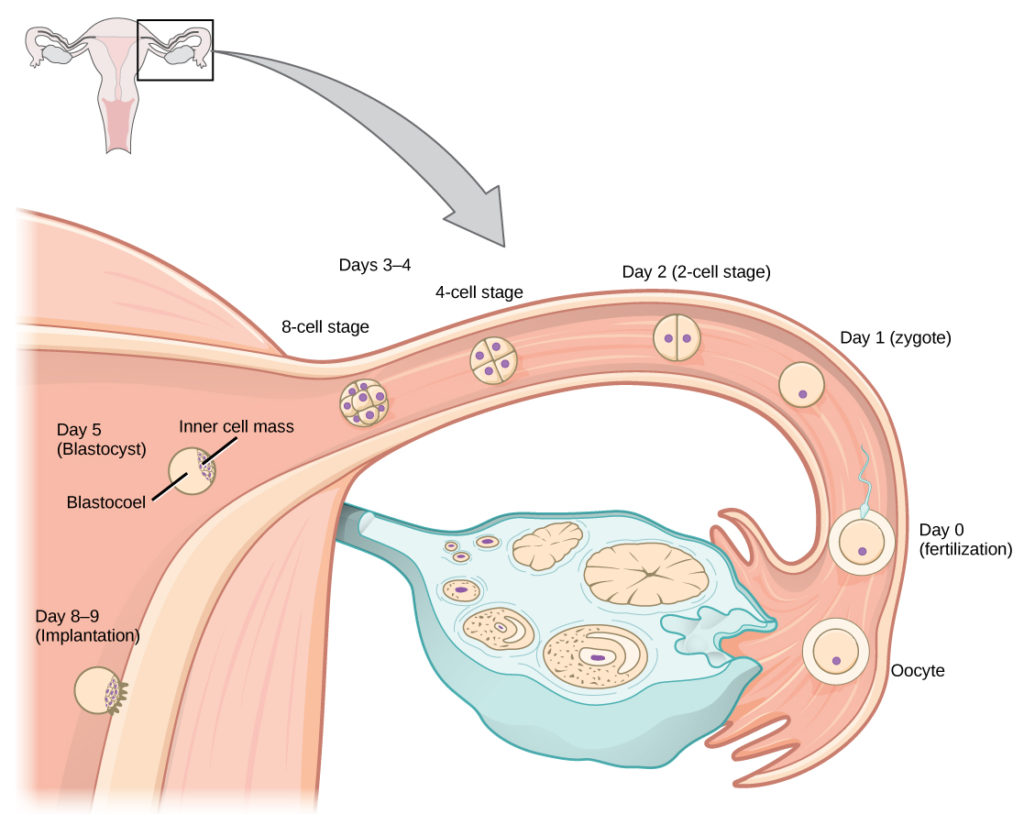Ovulation Pain: Why Does It Happen and When Should You Be Concerned?
For many women, ovulation is just another part of their menstrual cycle. However, for some, it can be a painful and uncomfortable experience. Understanding why ovulation can be painful and what is considered normal versus concerning can help women better manage their symptoms and seek appropriate medical attention when necessary.
Ovulation occurs when a mature egg is released from the ovary and travels through the Fallopian tube, ready for fertilization. While some women may not feel any discomfort during ovulation, others may experience varying degrees of pain or discomfort. This pain is known as ‘Mittelschmerz‘, which is German for “middle pain.”

credit: https://philschatz.com/biology-book/contents/m44848.html
The exact cause of ovulation pain is not fully understood, but there are a few possible explanations. One theory suggests that the pain may result from the stretching of the ovarian wall as the egg is released. Another theory proposes that the pain is caused by the release of fluid or blood from the ruptured follicle.
When it comes to determining what is normal versus abnormal, it’s important to consider the intensity, duration, and frequency of the pain. Mild cramping or a twinge on one side of the lower abdomen is commonly reported during ovulation and is generally considered normal. This discomfort usually lasts for a few hours to a couple of days.
On the other hand, severe or persistent pain during ovulation may be a cause for concern and should be evaluated by a healthcare professional. If the pain is debilitating, lasts for an extended period, or is accompanied by other unusual symptoms such as fever, heavy bleeding, or unusual vaginal discharge, it is recommended to seek medical attention. These symptoms may indicate an underlying condition, such as ovarian cysts, endometriosis, or an infection, which require further investigation and appropriate treatment.
It’s worth noting that every woman’s experience of ovulation can vary. Some may feel noticeable pain or discomfort during each cycle, while others may never experience any discomfort at all. If you are concerned about your ovulation pain or have any questions, it is always best to consult with a healthcare professional who can provide personalized advice based on your specific situation.
In conclusion, ovulation pain is a common experience for many women. While mild discomfort is generally considered normal, severe or persistent pain may be a cause for concern and should be evaluated by a healthcare professional. Understanding the causes and symptoms of ovulation pain can help women better manage their symptoms and seek appropriate medical attention when necessary.


